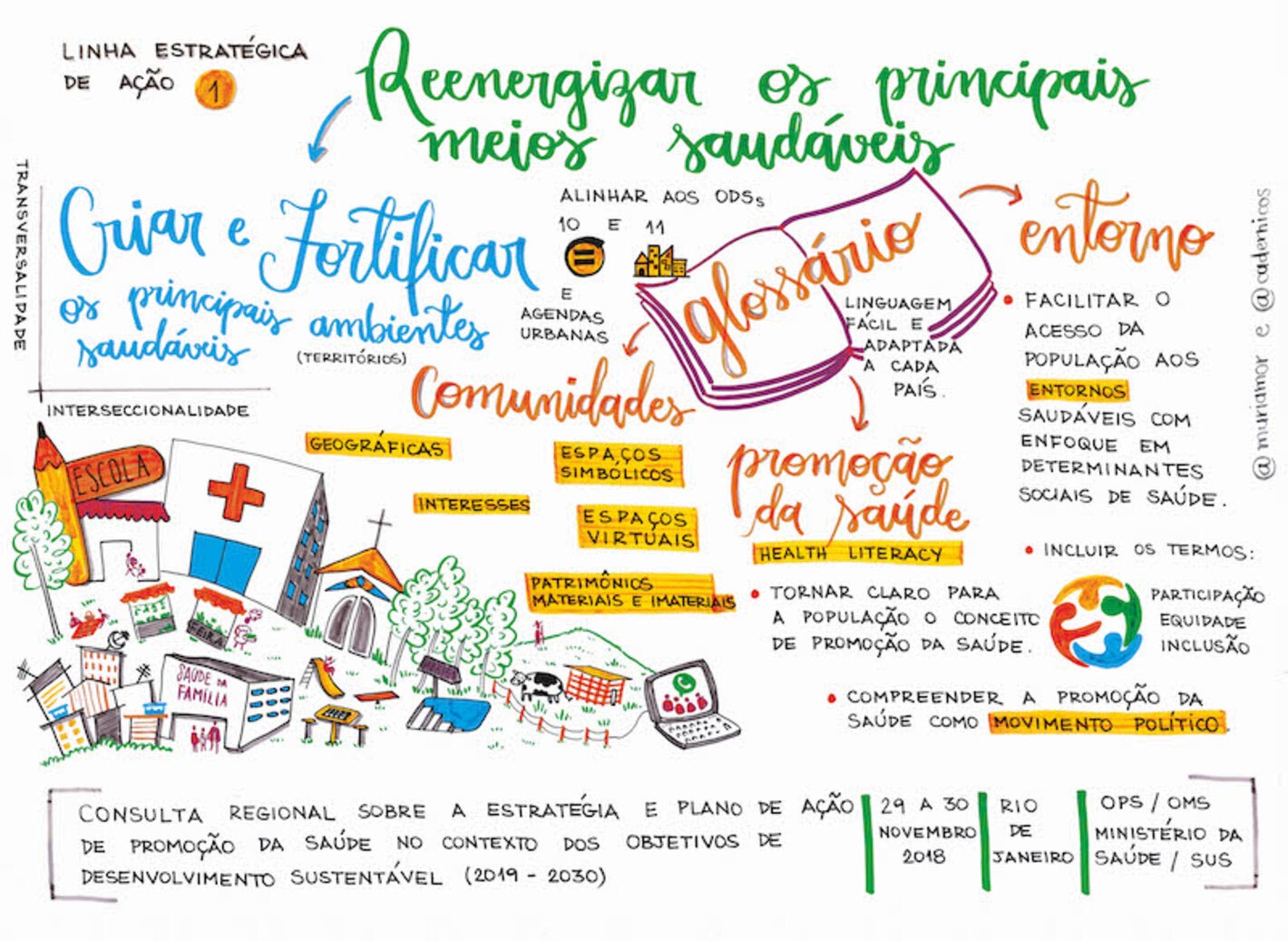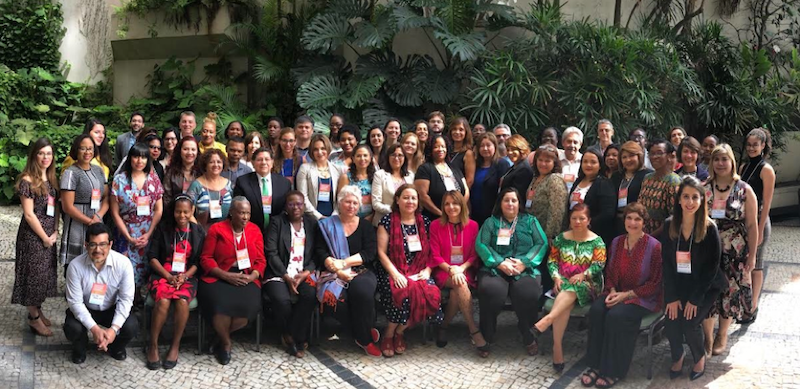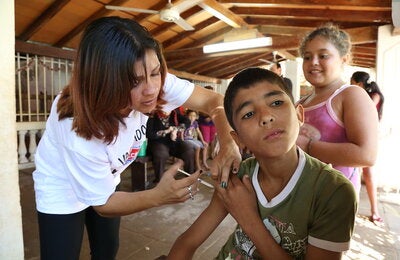
A dynamic movement for Health Promotion is taking place across the Region of the Americas.
Over the past months, Ministries of Health in over 30 countries and territories across the Region have convened meetings with intersectoral actors, community members and civil society to spark critical dialogue on the role of Health Promotion within the context of the Sustainable Development Goals (SDGs). This, in the search for better health and wellbeing as well as increased health equity.
Health Promotion, the process of enabling people to increase control over—and to improve—their health, seeks to strengthen individual and community capacity for better health, as well as to address the social determinants of health through meaningful participation and intersectoral work for better health equity. The Ottawa Charter for Health Promotion (1986) outlines the main strategies and pillars of Health Promotion, but a reinvigoration and renewal of health promotion that reflects contemporary realities of the Region is necessary to achieve better health equity and to contribute to the achievement of the SDGs.
The national consultations on Health Promotion of 2018, led by the Ministries of Health in collaboration with country focal points of the Health Promotion and Social Determinants of Health unit (FPLS/PS) culminate in the development of the Strategy and Plan of Action on Health Promotion within the Context of the Sustainable Development Goals (2019-2030)to be presented at the 57th Directive Council of PAHO in 2019. The Strategy and Plan of Action seeks to renew health promotion through a social, political and technical movement, addressing the social determinants of health (SDH), to improve health and reduce health inequities, within the framework of the 2030 Agenda for Sustainable Development. Its four strategic lines are the following:
1. Strengthen key healthy settings
The key settings that could be addressed in a multisectoral way to promote health and improve quality of life include schools, universities, housing, workplaces, hospitals and health centers, religious centers, prisons, markets, emergency shelters and urban and rural communities, among others. This approach is key as it can highlight the importance of multicultural aspects of communities and ensure that no one gets left behind.
2. Enable community participation and empowerment and civil society engagement
The empowerment of communities—their ownership and control of their own endeavors and destinies—requires full and continuous access by communities to complete, accurate and appropriate information; learning opportunities for health; and establish sustained funding. It is also fundamental, to strengthen health promotion, to have a more meaningful engagement with civil society.
3. Enhance good governance and intersectoral work to improve health and wellbeing and address the social determinants of health
Good governance means that governments have the fundamental responsibility at global, national, and local levels to develop policies for health and social justice through democratic processes that benefit the whole of society. By emphasizing the importance of promoting and integrating health across all sectors and policy areas, using the health in all policies approach, it also builds the capacity of health policy professionals to recognize and support the development goals of other sectors.
4. Strengthen health systems and services through health promotion
From the Alma Ata Declaration in 1978 to the Astana Declaration in 2018, Health Promotion and Primary Health Care have been recognized as complementary strategies to strengthen health systems for equitable health outcomes. The starting point is the recognition of health as a human right and as a component and condition of sustainable development.
Focused on reducing health inequities and promoting health and well-being, the Strategy and Plan of Action emphasizes the role of intersectoral work and participation across all 4 strategic lines.
Following the national consultations, 35 countries and territories met in Rio de Janeiro, Brazil on 29-30 November 2018 to review and discuss the proposed strategic lines, objectives and indicators. Representatives of governments were also joined by a group of non-state actors who contributed to the rich dialogue on the renewed role of Health Promotion within the context of the UN 2030 Agenda for Sustainable Development. FPL/PS looks forward to collaborating with partners within PAHO as well as outside of PAHO to continue building on the momentum of the renewal of Health Promotion.
Links:
To read the Shanghai Declaration on promoting health in the 2030 Agenda for Sustainable Development (2016):
https://www.who.int/healthpromotion/conferences/9gchp/shanghai-declaration/en/




